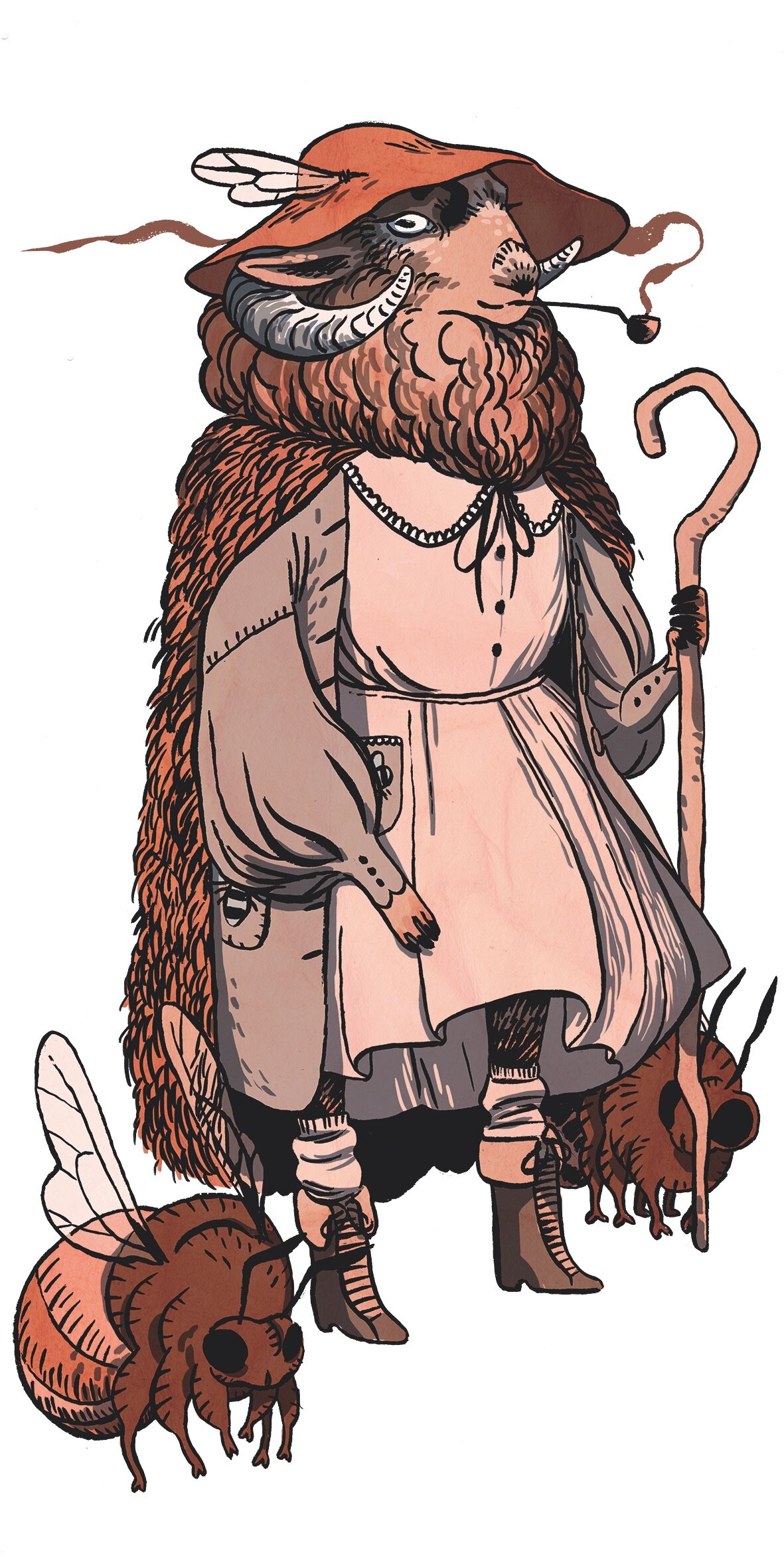Wanderhome Made Me Reconsider the Value of Wholesomeness
All my favorite stories hurt. Sure, YA is fun and happy endings are nice. Cotton candy goes down easy, but you can’t live on cotton candy alone. All the art that I consider truly important to me has earned that status by digging its hooks deep into my heart, looking me in the eyes, and twisting.
So imagine my surprise when I picked up Jay Dragon’s Wanderhome — a tabletop roleplaying game that exclusively operates in an emotional palette of pastels and soothing earthtones — and found myself thoroughly captivated. How did this happen? How did a pastoral fantasy game about adorable animal people capture my terminally jaded imagination?
“It’s incredibly thoughtfully constructed, a masterclass in tone-setting and intentional design, but its wholesome tone is one I generally can’t stand. And yet, I can’t get enough of it.”
We’re gonna get to the bottom of this, but first we have to go over some basics. Wanderhome runs on what is known as the “Belonging outside Belonging” system, a ruleset which is heavily geared towards freeform collaborative storytelling. If your only touchstone for this kind of thing is Dungeons & Dragons then it’s going to require a bit of a shift in perspective: there’s no Game Master, no dice, and no numbers to keep track of. Instead, everyone gets a “playbook” which outlines the broad strokes of their character through open-ended prompts, as well as being empowered to take on the roles of side characters, locations, and abstract setting elements as the narrative demands. During play, the ebb and flow of the story is guided by “tokens,” an elegant meta-currency which encourages players to both seize the creative spotlight and cede it to their fellow travellers in turn.
In other games that use this framework (such as the excellent Dream Askew and Dream Apart), these tokens incentivise you to play to your character’s flaws, make them trip up, or act selfishly to enhance the drama. So committed is Wanderhome to its pastoral idyllicism, however, that it reframes the entire mechanic into something softer. You don’t gain a token when you “promise something you can’t possibly deliver” or “blunder into a bad situation unprepared,” but when you “give away something you hold dear,” “pause for a moment to get some rest” or, my personal favorite, “take a moment to watch a tiny moment of beauty, and describe it to the table.” This subtle but significant change is a microcosm of how the game as a whole builds off its base system in order to hone in on its chosen themes with laser focus. It’s incredibly thoughtfully constructed, a masterclass in tone-setting and intentional design, but its wholesome tone is one I generally can’t stand. And yet, I can’t get enough of it.
Photo Courtesy by Possum Creek Games
Is it the art? I like the art. The rulebook is one of the most gorgeous I’ve ever seen, full of warm sunsets and cozy little villages and crumbling shrines to small and forgotten gods. Portraits of kith (the game’s term for the anthropomorphic denizens of this bucolic realm) are all stunningly detailed and gorgeously expressive; a bullfrog brims with joviality, a salamander veteran’s guilt and determination are etched onto its face, a slender deer musician seems on the verge of succumbing to grief.
Whatever else contributed to my love of this game, it is its emotional range that cinches it. While Wanderhome is certainly sweet and undoubtedly soft, it avoids becoming saccharine by way of a subtle but persistent emotional edge which draws that lightness into contrast. The game does not posit a world free from suffering: there are shades of violence in the setting’s past, mention of a War and a Revolution as well as the kind of thunderous theological conflict which would be the focus of a more traditional fantasy story—but all that is background. It’s over. You’re healing. The introduction to each playbook contains an assertion that “you are alive,” cementing that this game is about trauma and recovery as much as backpacking cottagecore furries.
Through its mechanics and its artwork and its authorial voice, Wanderhome positions itself as an escape from an unkind world. However, it never expects you to forget that that world exists. In this way it accomplishes something no other game, and in fact no other piece of media has ever done: allowed me to indulge in the lighter, softer side of my imagination without leaving me feeling put off or talked down to.
If that sounds interesting to anyone reading this, hit me up. I put this book down with a song in my heart, which quickly coalesced into a world-weary mountain goat with a cloak big enough to hide in and a past she doesn’t like to talk about. The game’s intuitive character creation process allowed me to flesh out this character in a matter of minutes, only leaving blank spaces for her relationships to other players’ kith. One thing that is certain, though: her journey has been long and difficult and, though she would never admit it, she yearns for companions with which to share the road.

